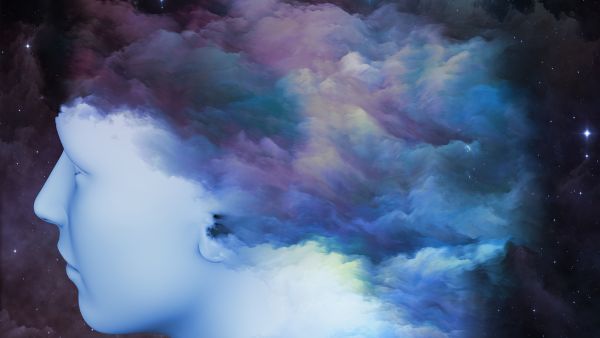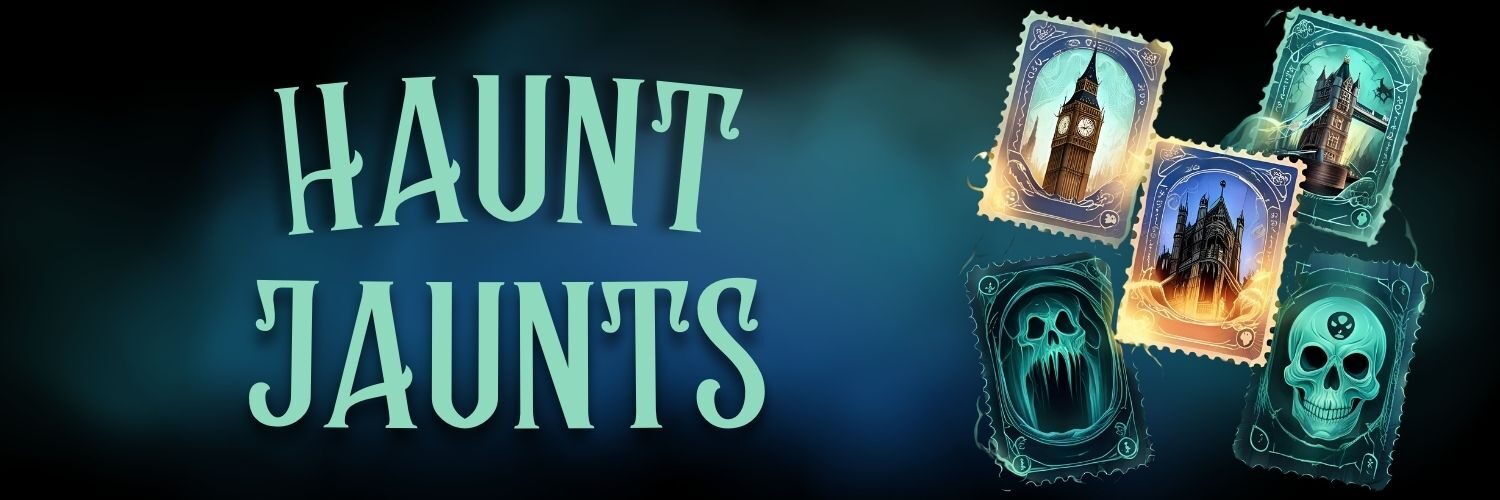
“Haunted People Syndrome” is one of the theories to come out of a five-year research program study to try and better understand hauntings and related paranormal phenomena. In fact, it was one of the primary theories that emerged from the study, which is also the focus of a new book, Ghosted.
Forbes reported that the Haunted People Syndrome theory was also the subject of new study published in Spirituality in Clinical Practice (SCP), a journal. The American Psychological Association describes SCP‘s scope as “a practice-oriented journal that encompasses spiritually-oriented psychotherapy and spirituality-sensitive cultural approaches to treatment and wellness.”
Psychologist Brian Laythe is one of the five study collaborators and Ghosted authors. (The others include Jim Houran, Neil Dagnall, Kenneth Drinkeater, and Ciarán O’Keeffe, with a foreword by Chris French and an afterword by Loyd Auerbach.) But the Forbes article focused on what Laythe had to say about Haunted People Syndrome.
But before examining that, knowing what the book is about is helpful so let’s start there.
Ghosted Synopsis
Here’s the synopsis from Amazon:
Reports of paranormal experiences vary tremendously, but are often associated with ghosts, haunted houses, and otherwise eerie circumstances. There exist both classic and modern texts on ghosts and haunted or possessed people, places and spaces; many discuss traditional ideas regarding such phenomena or utilize now-outdated research in highly academic and technical ways.
This book offers a very different approach in reviews provided by a leading-edge research program devoted to who has ghostly experiences and why. With new insights both global in scale and multidisciplinary in scope, this collaboration by five researchers uncovers consistent evidence that anomalous experiences represent a very real “Haunted People Syndrome”–a term describing anomalous experiences that manifest recurrently to the same percipients and are interpreted as “ghostly”–with implications for future research across academia. The participation of new citizen scientists (the field investigators and researchers among us) is invited in furthering the exploration of paranormal mysteries. Photos and figures illustrating concepts and models are included, as is a glossary.
Haunted People Syndrome’s 4 Core Features
Forbes listed them as:
- The meaning-making or narrative created around haunting experiences is influenced by personal backgrounds, beliefs, and personality characteristics
- Anxiety and distress regarding hauntings are a function of the nature, closeness, and spontaneity of anomalous experiences
- Distress and unease make anomalous experiences more likely to occur
- Anomalous experiences tend to be contagious, i.e, anomalous experiences can spread to others
The Reality of Paranormal Experiences
Laythe explained, “Just like symptoms of the flu, the severity of the diagnosis is a function of the degree and rarity of symptoms and their length.”
He explained that “transliminality” is a also a predictor of “anomalous experiences.”
Forbes further clarified that “as a concept, transliminality refers to the boundary between the conscious self and unconscious self, as well as the outside environment. In parapsychology research, it has been associated with extra-sensory perception, out-of-body experiences, and visionary-like experiences in general.”
What it all seems to mean is that people can be “primed” to have paranormal experiences. It boils down to “a mixture of the right person within the right environment.”
Validating Haunted People Syndrome
Another thing the study emphasized is the need for taking paranormal events seriously, both by the experiencer and those they relate their experiences to. Especially because experiencing them can be shocking, anxiety-inducing and disturbing. Denying them isn’t beneficial to well-being.
Or, as Laythe explained it, “Clinical professionals certainly do not tell people with anxiety or depression that their experiences are not real or valid. At the very least, Haunted People Syndrome is a valid cross-cultural commonly experienced phenomenon and should be treated as such.”
Check-In
What are your thoughts about the Haunted People Syndrome theory?
Courtney Mroch is a globe-trotting restless spirit who’s both possessed by wanderlust and the spirit of adventure, and obsessed with true crime, horror, the paranormal, and weird days. Perhaps it has something to do with her genes? She is related to occult royalty, after all. Marie Laveau, the famous Voodoo practitioner of New Orleans, is one of her ancestors. (Yes, really! As explained here.) That could also explain her infatuation with skeletons.
Speaking of mystical, to learn how Courtney channeled her battle with cancer to conjure up this site, check out HJ’s Origin Story.

The first core feature, that experiences are influenced by backgrounds, beliefs, and personality, I totally believe. One time a woman comment on a blog post that it was normal in her country (Central America somewhere, if I remember right) to believe in and see ghosts. Normal? The country’s belief system has to play a role in that!
As for the other three features, hmm. I dunno. I’d have to learn more about them before making a decision.
VERY good point, Priscilla! It does seem that there are certain factors that play into people believing in the paranormal and whether they’ve had an experience or not. Your example about it being normal in that woman’s country to believe in ghosts and see them was a perfect example to sum it up. I ordered this book to do what you said: learn more before making more of a decision. I’d like to see what it’s all about and figure out how they came to their conclusions. If anything, sounds like interesting reading and maybe a new perspective to consider.